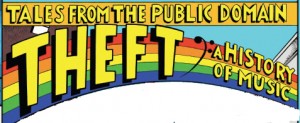My new Financial Times column on the Obama Administration’s copyright policy just came out.. I had previously written about the hugely disappointing failure to back copyright limitations to benefit visually impaired citizens. But that has changed…
“The good news? In December of 2009 the United States changed its position. Speaking at the World Intellectual Property Organization, Justin Hughes, a very distinguished and impressive senior advisor in the Department of Commerce, broke new ground. “We recognize that some in the international copyright community believe that any international consensus on substantive limitations and exceptions to copyright law would weaken international copyright law… The United States does not share that point of view.” The US, it seems, could actually stand up for the principle of a balanced copyright policy – at least in the context of the visually impaired.
It is a mark of how reduced our expectations have been in copyright law that this seemed like a great victory. When the decision not to throw the blind under the copyright juggernaut counts as enlightened policy, it tells one a lot. But I am a great believer in praising policy makers for doing the right thing, so kudos to Mr. Hughes and the Obama administration for having the spine to take a stand on principle. (EU policy makers might study the process to their advantage. The process of evolution from invertebrate to vertebrate is an exciting one.) Let us hope these words turn into real achievements for the visually impaired.
But sadly the rejoicing must have limits. Those of you who use that useful communications network known as “the Internet” might be interested to know that a treaty that could profoundly affect your rights is now being negotiated by a group of developed states including the United States and the EU…”
The rest is here








